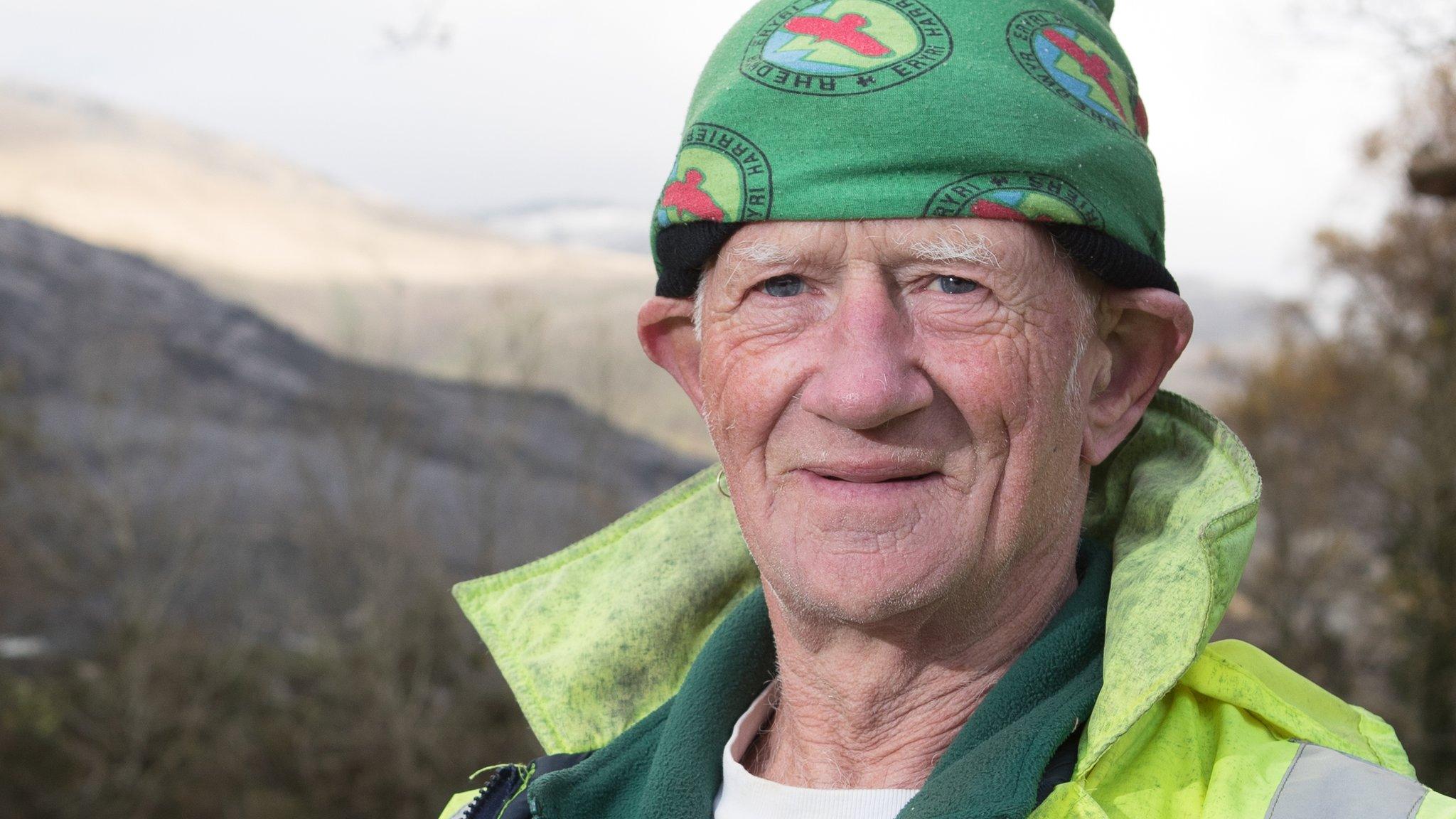Bid to ban GPS from helping fell running racers find their way
- Published
Footage of the Pen y Fan fell race in the Brecon Beacons in July
They can help when you are picking your way down the side of a mountain in the mist, but a bid is taking place to ban GPS mapping devices from fell running.
Race organisers claim the use of devices like watches that can allow runners to follow pre-plotted routes is changing the spirit of the sport.
Welsh Fell Runners Association (WFRA) members have added their names to an open letter, external seeking a ban.
Chairman Craig Jones said: "Using Nasa to help, that's a big advantage."
There is no policy in place preventing their use in Welsh races but one English group has banned them.
The Fell Runners Association, which has 6,000 members from about 300 clubs among its ranks, said a proposal was being "developed regarding the use of electronic devices to aid route finding" and which will be debated later this month.
WFRA chairman Mr Jones has added his name to the letter as he is not a fan of using GPS technology in races.
Fell running is about being in the great outdoors, negotiating checkpoints by picking the best route across a challenging landscape - with a map and compass a requirement in the runner's kit bag, along with wet weather gear and food when competing in distances of more than 12 miles.
But with advances in technology, some runners may also consider a GPS device a worthwhile investment.
Mr Jones, who has been competing in the sport for 27 years, said he suspected the use of GPS watches - providing runners with "breadcrumb" trails to follow - was "creeping" into the sport, especially in more lengthy and challenging races, changing the "essence" of fell running.
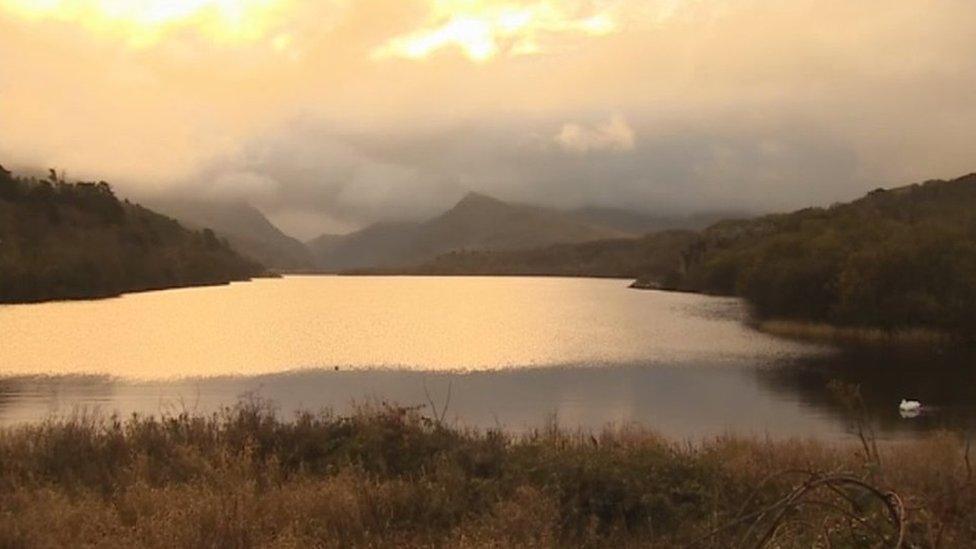
Cloudy conditions can make navigating a fellrunning course difficult
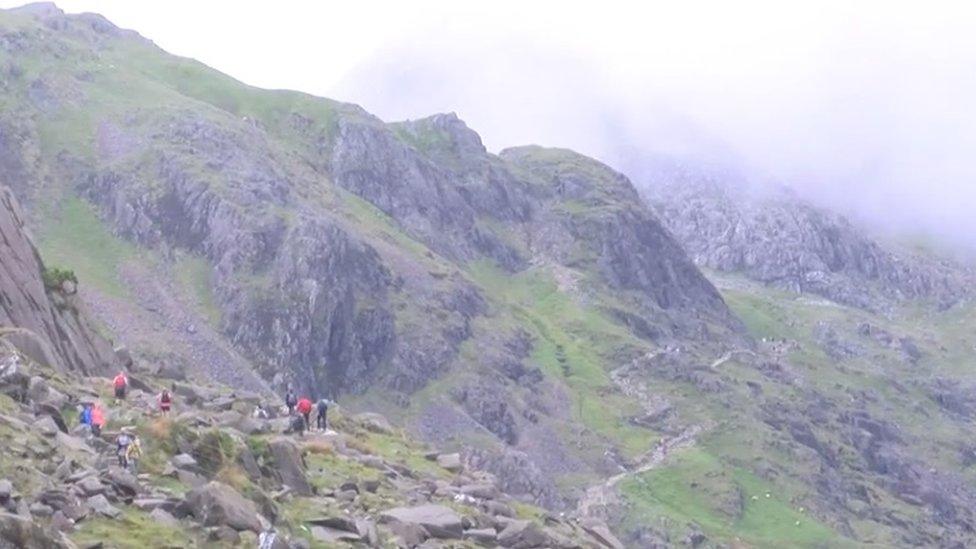
Fell runners en route to Snowdon summit finish line
"When the cloud comes down it's between you and the mountain," he said.
But race organisers like Charles Ashley believe that is the very reason they should be allowed in the sport.
Mr Ashley, who helps to organise fells and trails races for Wrexham Athletics Club, as well as supporting novices, said: "If you ban the GPS and they are not experienced map readers, it could put people off."
Mr Ashley, who has been running for 26 years and organising races for last eight years, prefers to carry a map and compass although he always has a mobile phone with him.
"You don't know what might happen," he said.
And Dick Finch, who organises events, including Cwmdu Fell Race, near Crickhowell, Powys, explained that some competitions were route marked anyway so runners would not necessarily benefit from using a personal device with GPS.
"But, in theory, I would seriously consider restrictions on GPS use if I organised a race where it might give unfair advantage," he said.
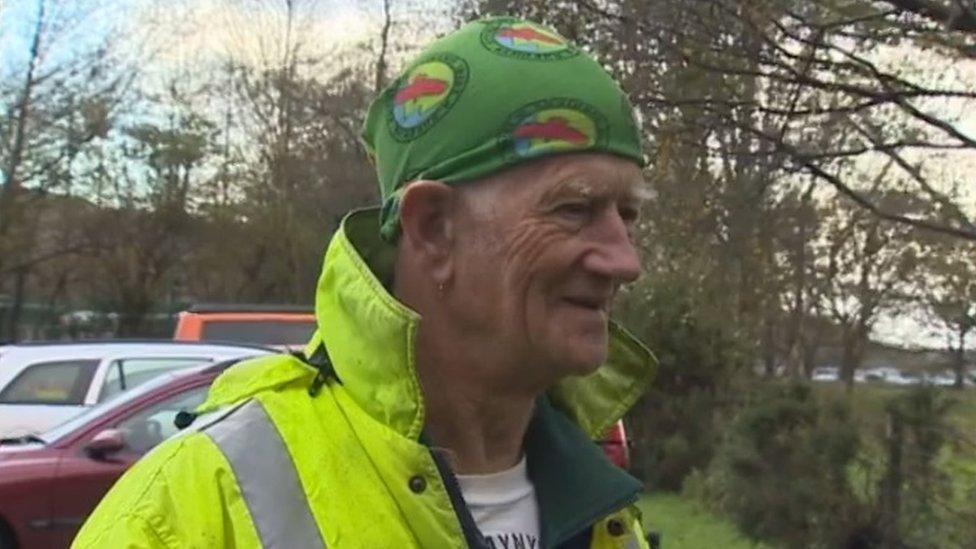
Fellrunning veteran Mike Blake prefers the use of a map and compass than technology
WFRA safety officer Helen Brown, a member of Mynydd Du fell running club based around the Black Mountains and Brecon Beacons, has added her name to the open letter backing a ban.
"My personal viewpoint prior to debate is in favour of an outright ban, both on safety grounds and for the integrity of the sport," she said.
She explained how she has seen people training with GPS devices that have run out of battery and they have been unable to get themselves to safety.
But, safety aside, she said, the sport was "defined by its ethos of self reliance in the mountains" so using a GPS device "detracts from the integrity of the sport".
North Wales fell running "hero" Mike Blake agrees, adding "if they pack up you don't know where you are".
The 69-year-old, who was named BBC Wales' Get Inspired Sports Unsung Hero for 2017, said a map and compass were essential for safety - along with the ability to use them.
Mr Blake, who has helped to organise more than 300 races while a member of Eryri Harriers club in Llanberis, Gwynedd, for nearly 40 years, said GPS use was "taking the spirit away" from the sport and creating an advantage for some participants.
"Those with the best gear will win," he said.
Ambleside AC (AAC) in Cumbria prompted the debate after banning GPS use in races earlier this year.
Runners take on Snowdonia's Welsh peaks
It said that without taking action it was "foreseeable that, to be competitive, owning, and knowing how to use this 'bread crumb' GPS function will become an essential part of fell running".
A statement, external on its website added: "AAC feel that most fell runners, and certainly the vast majority of those canvassed by us, accept that this threatens something at the heart of the sport and were keen to see some control over the use of GPS tracks to navigate.
"We do not want to discourage people from having a go. You can wear your watch and record your run. You can use the technology in an emergency to relocate yourself.
"Whether you agree with our GPS rules or not, we ask that you respect them if you enter a fell race organised by us."
WFRA chairman Mr Jones said the group would "watch with interest" as the FRA is due to discuss the issue at its annual general meeting later this month.
The FRA said: "We intend to publish our proposal early in August to allow an informed discussion at the AGM on Saturday 18 August."
- Attribution
- Published4 June 2018
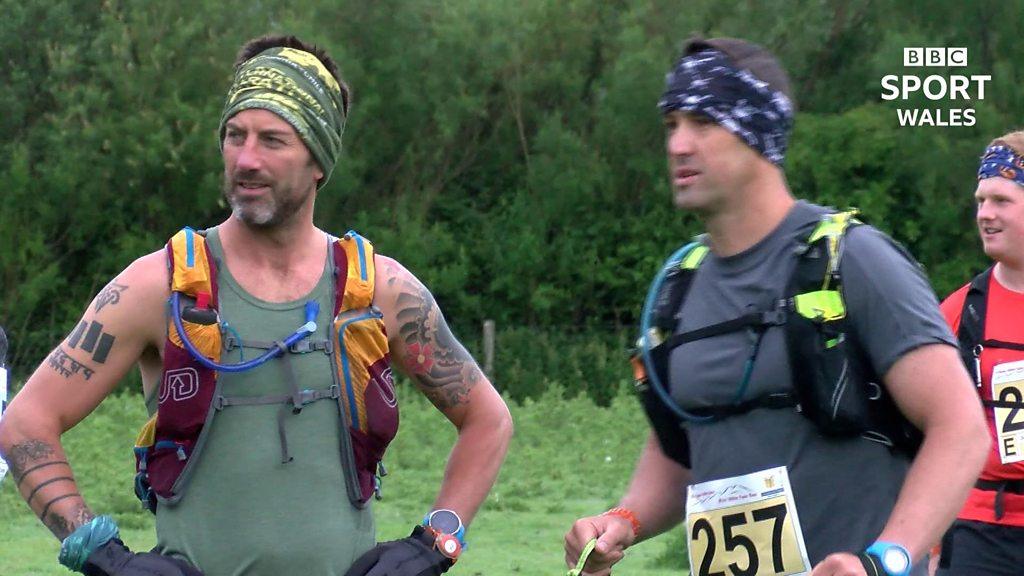
- Attribution
- Published21 November 2017
